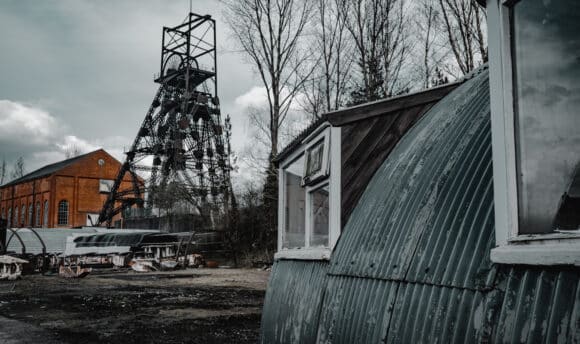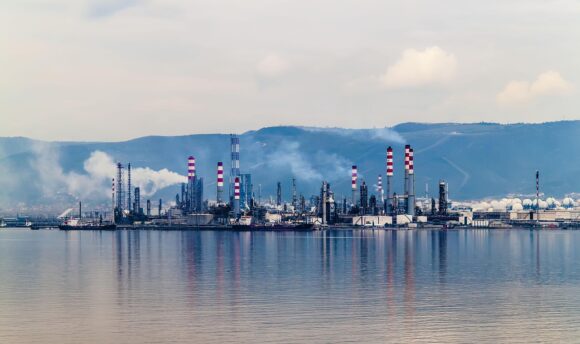By continuing to do coal business on the side and insuring new oil and gas projects, German insurers are putting their climate credibility at risk.
Last year saw more hurricanes than ever before, unprecedented wildfires from Australia and California to Siberia, and flood disasters from China to the Sahel region. During the recent Earth Day, on 22 April, UN Secretary General António Guterres warned that we’re “on the verge of the abyss” of an unmanageable climate crisis.
The insurance industry is particularly impacted by the climate crisis. Since 1970, the costs of natural disasters have grown five-fold in real terms, and there is no end to this trajectory in sight. Insurers paid $82 billion for damages caused by climate disasters last year and are withdrawing from regions exposed to high climate risks altogether, such as the Florida coast and California’s wildfire areas.
Munich Re, one of the world’s biggest reinsurance companies, has warned about growing climate risks since 1973 – almost 50 years ago.
The exposure of major insurers to these risks has motivated them to review the climate impacts of their own business activities, and German insurers have played a leading role. For example, Allianz, Munich Re and five other insurers have committed to achieve net-zero carbon emissions from their insurance and investment business by 2050.
Allianz restricted its insurance services for the coal industry in May 2018 and tightened these restrictions last week. Munich Re also limited its cover for coal projects in August 2018. By now, 26 big insurance companies have taken this step.
“If we are not leading the charge against climate change, who would,” Allianz CEO Oliver Baete asked when he announced the company’s original coal restrictions.
Despite such positive beginnings, the climate commitments of the big German insurers have important gaps. Both Allianz and Munich Re, for example, continue to be involved in the global coal business.
Allianz has only divested its own assets from the coal industry but continues to invest the more than $1 trillion in assets which it manages for third-parties in coal companies. PIMCO and AGI, the two asset management arms of Allianz, ranked lowest among all German asset managers in a recent report on the topic.
Munich Re in turn has ended its facultative reinsurance cover for specific coal projects. However, through its so-called treaty business, the reinsurer continues to cover large portfolios of primary insurers, even if they contain lots of coal business.
Treaties make up the biggest part of the global reinsurance market and, by omitting them from its coal restrictions, Munich Re lags behind its main peer Swiss Re, which is phasing out support for coal across all business sectors.
This gap allows insurance companies like Poland’s PZU to keep underwriting some of Europe’s dirtiest coal companies – with support from Munich Re.
What’s more, exiting from coal alone won’t help us to avoid a climate disaster. The UN Environment Programme found in December that we need to reduce the extraction of oil and gas by 3-4% every year through 2030 in order to limit global warming to 1.5°C.
This does not leave any space for new oil and gas projects in the planet’s carbon budget. And yet governments are planning to expand the global extraction of oil and gas by 2% every year.
Who, you may ask, is offering the insurance cover without which risky new oil drilling rigs, pipelines and gas plants could not be built? According to Finaccord, a market intelligence provider in the insurance sector, Allianz and Munich Re are among the leading underwriters of oil and gas projects around the world.
HTF Consulting, another market intelligence company, estimates the market share of the two German insurers in oil and gas at more than 15%.
The oil and gas sector offers more business opportunities than the coal sector, which has massively shrunk in recent years. The revenues from insuring new oil and gas projects, which are particularly damaging from a climate perspective in that they lock the world into decades of new fossil fuel extraction, are however estimated at only 0.1% of all non-life insurance premiums.
By continuing to insure such projects, insurers indicate that they are prepared to violate their own climate commitments for a minor financial benefit.
As Guterres has warned, we are standing at the verge of a climate disaster and can’t waste any more time. By taking strong initial action on climate change, Allianz and Munich Re have created a positive image for themselves among their customers and employees.
It’s been 48 years since they first rang the alarm bell on climate change. By continuing to do coal business on the side and insuring new oil and gas projects at the edge of the abyss, the German insurers are putting their climate credibility at risk.



